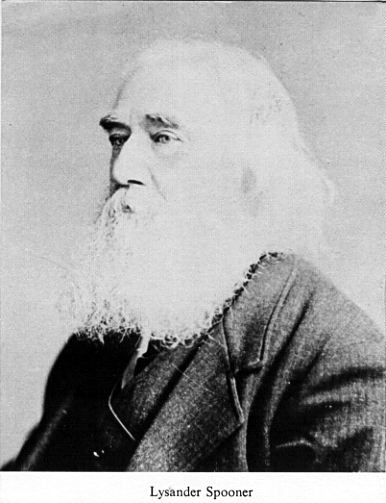Liberty Matters
Rectification and Knowledge

Matt comments on Spooner’s argument that the Irish were right to want the British to leave and Ireland returned to the Irish: “If Spooner is right, then his argument has uncomfortable implications for those of us who live in comfort and prosperity today. How much of our own wealth might be traced, if we cared to look, to unjust origins of the sort that Spooner decries? And if it can be, then what should we do about it?” But unlike the agrarian past, it’s no longer the case that land is the only source of wealth. Bob may live in a 500-square-foot rental unit but still be incredibly wealthy. To assume that Bob’s wealth is unjustly held is partly fixed-pie fallacy – Bob’s wealth used to belong to someone else the same way British land used to belong to the Irish. But unlike land, new wealth can be created. So while it’s easy to look at British-held land and say, “Actually, that belongs to someone else,” it’s far from obvious that we can say this of Bob’s wealth. The argument that “the justice of any distribution of property rights depends entirely on how that distribution came about” overstates the case.
It overstates the case in another way: Spooner assumes the Irish from whom the British seized the land were themselves properly entitled to it. Part of the unclarity arises from falling into the trap of talking about “the Irish” as if that term refers to an entity which can own something and be stolen from. But in reality, some particular Irish person had his land stolen by the British government. This isn’t nitpicking: the particular Irish person, let’s call him Bill, who was dispossessed – was he a legitimate owner in the very sense Spooner is concerned with? Or was his title itself illegitimate? The claim is “No lapse of time can cure this defect in the original title,” so on this view if Bill’s great-great-great-great-grandfather acquired that land by dispossessing some prior indigenous person, Bill wasn’t the legitimate owner. Does this mean the British are doing no wrong to seize Bill’s land? That seems like the wrong conclusion. Of course we don’t know the backstory of every single Irish landowner, but we surely don’t want to say either that the British were wrong to seize this one but not that one. The “unjust origins” objection means that no one can clearly be said to own anything. It gets its traction by making us think of common-sense legal principles. If I knowingly buy stolen property, I can hardly complain when the owner wants it back or even uses force to get it back.
There are two possible ways to object to Spooner on this point. One is to deny his claim that time is completely irrelevant. Even after a hundred thousand years? Are we all squatters on Neanderthal land? The other, and they’re related, is accept the irrelevance of time provided that victims and perpetrators are identifiable. Bill’s great-grandson may be able to produce a deed showing that the land in question had been taken unjustly from Bill. But even there, the “victims” would have to have had just title in the first place. If Bill’s great-grandfather unjustly acquired his land, then it’s not obvious that Bill’s great-grandson can claim timeless justice in claiming reparations from the British. What if the person Bill’s great-grandfather stole the land from emigrated to another part of the world. None of that person’s descendants have worked towards reclaiming their land, and indeed have started a new chain of possession of their new lands (which they acquired justly or unjustly?). So do other Irish people then have a claim on this land just because “the Irish” were dispossessed by “the British”?
It’s unsurprising that a proponent of natural law would also have an idea that time doesn’t negate injustice. And I think it’s true that time doesn’t negate injustice. But the question isn’t whether an injustice was committed – it’s what to do about it. The rectification of injustice cannot entail new injustice. We can’t rectify injustice without knowing victims and perpetrators, and we must not start thinking that “the British” or “the Irish” are names of intentional entities. On this particular point, I’m afraid Spooner’s theory proves too much: no one can know who justly owns what, so rectification goes to whoever claims it? That’s not justice. The best way to insure justice is to respect people’s natural rights, and apply rectification when knowledge permits.
Copyright and Fair Use Statement
“Liberty Matters” is the copyright of Liberty Fund, Inc. This material is put on line to further the educational goals of Liberty Fund, Inc. These essays and responses may be quoted and otherwise used under “fair use” provisions for educational and academic purposes. To reprint these essays in course booklets requires the prior permission of Liberty Fund, Inc. Please contact oll@libertyfund.org if you have any questions.